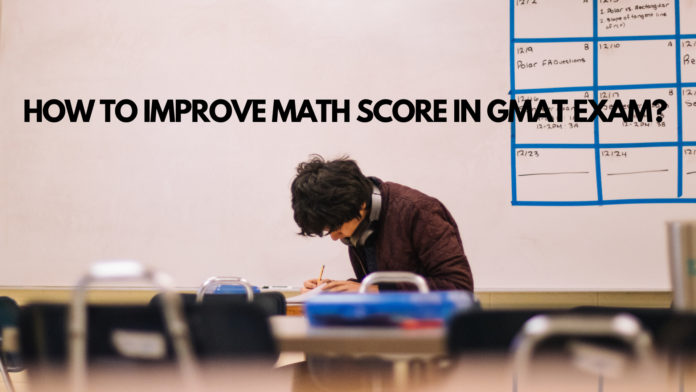The GMAT is a standardized test, which is commonly known as the Graduate Management Admission Test. It is a crucial part of the business school application process. The GMAT test is a multiple-choice, computer-based, and computer- adaptive exam which is usually required for admission to graduate business programs all over the world.
In the GMAT exam, the quantitative section may be the exam’s most popular and challenging section. Several misconceptions are surrounded the GMAT quantitative segment, like testing highly advanced math concepts or achieving a perfect score is impossible. Though, it’s more than possible to do well on this challenging part of the GMAT by creating your understanding of the quantitative segment through careful preparation.
GMAT Quantitative Test Format
The GMAT quantitative section assesses your ability to understand data by using reasoning skills and make conclusions. In this section, 31 multiple-choice questions test your skills in such areas, and you’ll have 62 minutes to complete the segment. The quantitative section is the third section of the exam, after the assessment of analytical writing and the section of integrated reasoning.
The GMAT quantitative section tests the content and analytical knowledge of basic concepts of mathematics like arithmetic, algebra, and geometry. Contrary to popular belief, advanced mathematics concepts are not tested on the GMAT quantitative section. Also, you only have to know high-school-level mathematics for the GMAT quantitative section.
Here are the following concepts tested on the GMAT test:
- Algebraic equations and inequalities
- Arithmetic
- Decimals
- Percentages
- Ratios
- Exponents and square roots
- Geometry and coordinate geometry
- Integers
- Factors
- Multiples
- Number lines
- Variable operations
Instead of assessing your understanding of complex concepts of mathematics, the GMAT wants to see how you can apply your knowledge of basic mathematical concepts on two types of questions: data sufficiency and problem-solving. Although both types of questions will allow you to do a similar type of math, they test various other skills. The problem-solving questions test how well you can find out the answers to numerical problems of various types. The question of data sufficiency tests your ability to assess whether the information is sufficient to solve problems.
Preparation Tips for GMAT Mathematics
Here are the several preparation tips for GMAT mathematics, which will be very helpful to achieve high band score:
1. Note DownCarefully
Write carefully the details of the question, which will help you in two different ways by using GMAT Math. Firstly, it can stop a couple of simple mistakes. This is particularly true on geometry issues, in which an incorrectly labeled diagram can take you directly to the incorrect answer. Secondly, when yourealize that your handwriting is becoming messy, then write clearly. Slowing down has a real impact on your thinking.
2. Don’t worry about the possibility
Possibility and combinatorics issues are the gift. Because the GMAT typically doesn’t make it clear which questions you should avoid. But if you are not confident with possibility or combinatorics, then it is wise to skip those questions.
Why do we suggest to skip these questions on exam day? It is not just because they usually get tough and time-consuming. There are two other major reasons for putting them on the skip list. Firstly, they don’t show up usually on the exam, so avoiding them probably will not affect your score. Secondly, the mathematics you need for these issues typically don’t work on certain types of issues. So you could end up studying for hours to get another problem right on the exam.
Want to practice good GMAT level questions? A good Online GMAT Prep course will provide you an exhaustive list of good GMAT level questions to practice.
3. See your posture
If you are nervous about mathematics then sitting straight while taking the exam can make you more confident about your GMAT performance. The more confidently you sit in a good posture, the better you will be able to perform.
4. Using guesses
You should learn to make wise and thoughtful guesses, but sometimes you have to get through a problem in 15 seconds on the test day. This approach will increase your chances of getting the answer anyway. But always try to make intelligent guesses.
Conclusion
When you study for GMAT math, it’s vitally important to know what math concepts the GMAT tests. In the GMAT exam, you also have to know about the test format of the GMAT mathematical section. In this section, 31 multiple-choice questions test your skills in such areas, and you’ll have 62 minutes to complete the segment. The GMAT quantitative section tests the content and analytical knowledge of basic concepts of mathematics like arithmetic, algebra, and geometry. Moreover, Online Tutoring Services will help you prepare for GMAT exam.









